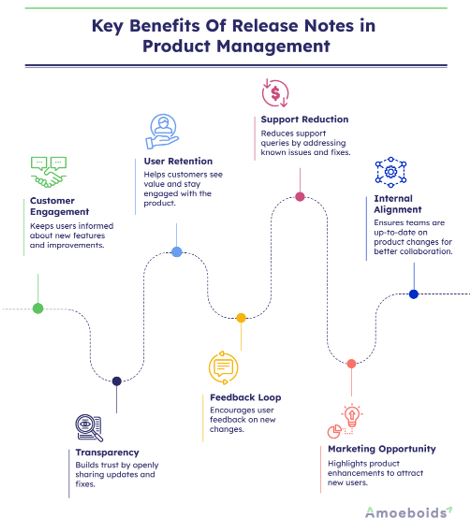Find Mental Health Support with Online Therapy and Counselling
In today’s fast-paced digital world, seeking mental health support has become easier than ever. With online therapy and counselling services, individuals can now access professional help from the comfort of their own homes. This guide explores the benefits, steps, and tips for making the most out of online counselling services like those offered at Bayridge Counselling Centres.
What Is Online Therapy and Counselling?
Online therapy, also known as e-counselling, is a form of mental health support provided through the internet. It enables clients to connect with licensed therapists via video calls, phone calls, chat, or email. This approach has gained popularity for its convenience, accessibility, and ability to maintain privacy.
Why Choose Online Therapy?
1. Convenience and Accessibility
Online therapy eliminates the need for travel, making it ideal for individuals with busy schedules, mobility issues, or those living in remote areas. Sessions can be scheduled during lunch breaks, evenings, or weekends.
2. Affordable Options
With no added commuting costs or office overheads, online therapy often provides a more cost-effective solution compared to traditional in-person counselling.
3. Greater Privacy
For many, discussing personal challenges in a public setting can feel uncomfortable. Online therapy allows clients to seek help discreetly, ensuring privacy and confidentiality.
4. Access to Specialists
Online platforms connect clients with a broad range of professionals specializing in areas such as anxiety, depression, relationship issues, or trauma, regardless of geographical location.
How Does Online Counselling Work?
Step 1: Research and Choose a Provider
The first step is finding a reputable platform or counselling center like Bayridge Counselling Centres. Look for licensed therapists with expertise in your specific concerns.
Step 2: Initial Assessment
Most online therapy services begin with an initial consultation. During this session, you’ll discuss your challenges and goals to determine the best course of action.
Step 3: Set Up Your Space
Create a comfortable, quiet, and private space where you can attend sessions without distractions. Good lighting and a stable internet connection are essential.
Step 4: Choose a Communication Method
Decide whether you prefer video calls, phone calls, live chats, or email exchanges. Each method has its benefits, so choose one that makes you feel most comfortable.
Step 5: Attend Regular Sessions
Consistency is key. Attend sessions as scheduled, participate actively, and complete any tasks or exercises assigned by your therapist.
Types of Issues Addressed in Online Therapy
1. Anxiety and Stress
Online counselling provides tools and techniques to manage overwhelming emotions and reduce stress.
2. Depression
Therapists work with clients to identify triggers, develop coping strategies, and rebuild confidence and motivation.
3. Relationship Challenges
Couples and individuals can address communication issues, trust concerns, and other relationship challenges.
4. Trauma and Grief
Online therapy offers a safe space to process traumatic experiences or cope with loss.
5. Self-Esteem and Personal Growth
Therapists can help clients build confidence, set goals, and work towards self-improvement.
How to Prepare for Your Online Therapy Session
1. Check Your Technology
Ensure your device, camera, microphone, and internet connection are functioning properly. Test them before the session begins.
2. Be Honest and Open
Share your thoughts and feelings honestly to make the most of your therapy experience. Your therapist is there to help, not judge.
3. Take Notes
Write down key points discussed during the session. This helps you track your progress and revisit helpful advice.
4. Follow Through with Homework
If your therapist assigns activities or exercises, make an effort to complete them. These tasks are designed to enhance your healing process.
Tips for Choosing the Right Online Therapist
1. Verify Credentials
Ensure the therapist is licensed and has relevant experience in dealing with your concerns.
2. Read Reviews
Check testimonials and reviews to understand others’ experiences with the service.
3. Compatibility Matters
A good rapport with your therapist is crucial. If you don’t feel comfortable, don’t hesitate to try another professional.
4. Look for Specializations
Choose a therapist who specializes in the area you’re seeking help for, whether it’s anxiety, grief, or relationship counselling.
Benefits of Online Therapy for Mental Health
1. Reduced Stigma
By attending therapy from home, clients can seek help without worrying about societal judgments.
2. Flexibility in Scheduling
Busy professionals, students, or parents can fit therapy sessions into their routines with ease.
3. Continuous Support
Even during travel or relocation, online therapy ensures continuity of care.
4. Immediate Access During Crisis
Some platforms offer on-demand support, providing immediate assistance during emergencies.
Challenges and How to Overcome Them
1. Technological Issues
Technical problems can disrupt sessions. Ensure you have backups like a phone number to connect with your therapist in case of issues.
2. Lack of Physical Presence
Some may miss the in-person connection. However, effective communication and trust can bridge this gap over time.
3. Privacy Concerns
Always use secure platforms that comply with data protection laws to safeguard your information.
Conclusion
Virtual Therapy and Online Counselling Services offer a modern, flexible solution for those seeking mental health support. By providing access to licensed professionals through digital means, services like Bayridge Counselling Centres make therapy more accessible, affordable, and effective.
Whether you’re dealing with anxiety, depression, or personal growth challenges, online therapy can help you regain control of your mental health. With careful preparation, consistency, and the right therapist, you can embark on a transformative journey toward well-being from the comfort of your home.


